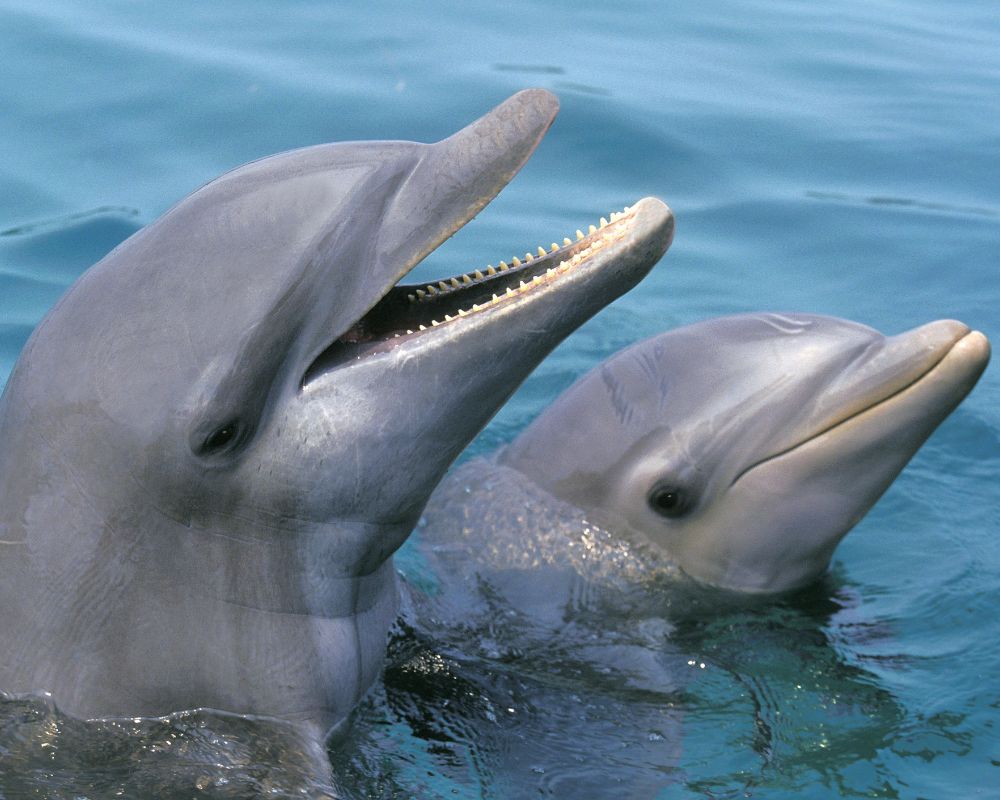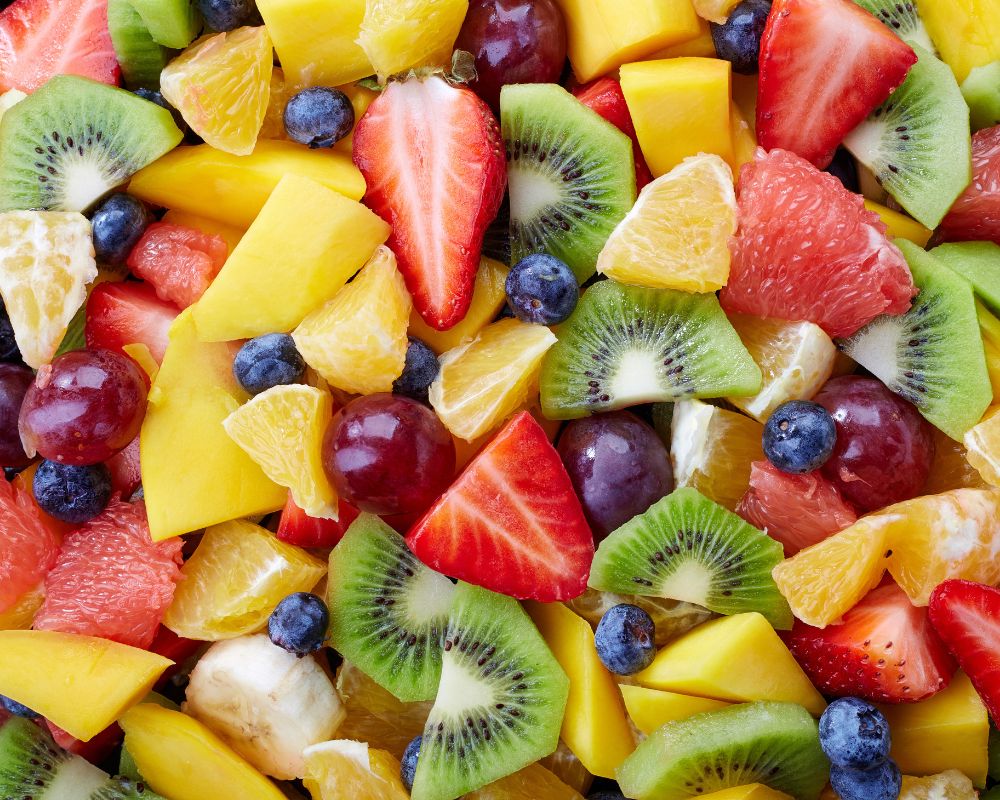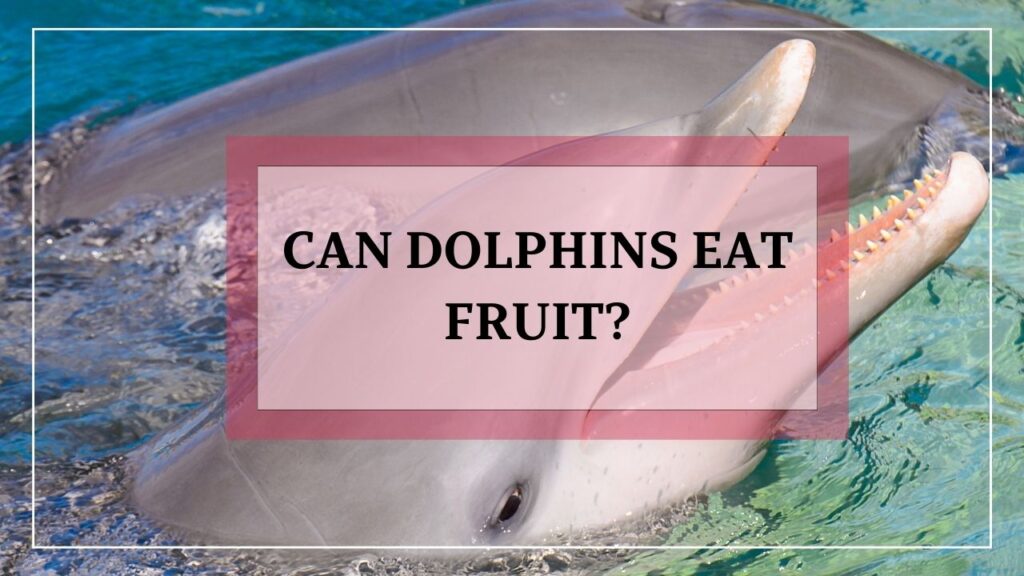Can Dolphins Eat Fruits? It’s a question that’s often on the minds of those of us who are fascinated by these incredible marine mammals.
Dolphins are known for their intelligence and playful nature, but what they consume to fuel their bodies is just as interesting.
One thing that people often wonder is whether or not dolphins eat fruit. After all, many land animals rely on fruits and vegetables as a part of their diet, so why wouldn’t dolphins do the same?
Well, as it turns out, the answer to this question is a bit more complicated than a simple yes or no.
In this blog post, we’re going to explore the world of dolphin nutrition and take a closer look at whether or not these animals can eat fruit. We’ll examine the factors that influence their diet and discuss the potential benefits and risks associated with consuming fruit.
Can Dolphins Eat Fruit?


As much as we might want to imagine dolphins munching on some juicy fruit, the truth is that fruit is not a significant part of a dolphin’s diet. In fact, it’s not even a regular part of their diet. So, can dolphins eat fruit? The short answer is yes, but they don’t eat it very often.
The reason for this is simple: dolphins are carnivorous animals that primarily eat fish and squid. Their digestive system is adapted to break down and extract nutrients from these types of prey, which contain high levels of protein and fat.
In contrast, fruits contain mostly carbohydrates, which are not as important for dolphins to consume.
When you compare a dolphin’s digestive system to that of herbivores and omnivores, you’ll notice some key differences.
Herbivores have longer digestive tracts and more complex digestive systems, which are designed to break down tough plant material.
Omnivores have a more flexible digestive system that can handle a wider range of foods, including both plant and animal material.
Dolphins, on the other hand, have a relatively simple digestive system that is specialized for digesting fish and squid. Their stomachs are able to rapidly digest these types of prey, which is important for a predator that needs to catch and consume food quickly.
Fruits Consumed by Dolphins
While fruit may not be a significant part of a dolphin’s diet, there are instances where dolphins have been observed consuming fruit in the wild. So, what types of fruits do dolphins eat and why do they choose to eat them?
Examples of fruits that dolphins have been observed eating include mangoes, figs, and even coconuts. These fruits are typically found in coastal areas, where dolphins may come across them while hunting for fish or exploring their environment.
Factors That Affect Dolphins Consuming Food
One factor that may influence a dolphin to consume fruit is availability. If a particular fruit is abundant in their environment and there is a shortage of their preferred prey, they may turn to fruit as an alternative food source.
Another factor is taste and preference. Just like humans, dolphins have individual preferences when it comes to the taste and texture of food. Some dolphins may find certain fruits more appealing than others and may be more likely to consume them if given the opportunity.
The season can also play a role in a dolphin’s decision to consume fruit. Fruits are typically seasonal, with different fruits available at different times of the year. For example, in some areas where mangoes are abundant during the summer months, dolphins have been observed consuming them more frequently during that time.
Finally, environmental factors such as pollution and habitat degradation may also impact a dolphin’s ability to find and consume its preferred prey. In some cases, dolphins may turn to alternative food sources like fruit as a way to adapt to changes in their environment.
Additionally, fruit can provide a source of hydration for dolphins, which is important for animals that live in saltwater environments.
It’s worth noting that while dolphins have been observed consuming fruit in the wild, it’s not a regular part of their diet. In most cases, they consume only small amounts of fruit as a supplement to their primary diet of fish and squid.
Benefits and Risks of Dolphins Consuming Fruit
One potential benefit of consuming fruits is that they can provide a source of vitamins and minerals that may not be present in a dolphin’s primary diet of fish and squid.
Fruits like mangoes and figs contain high levels of vitamin C, which is important for maintaining a healthy immune system.[1]
Additionally, fruits can provide a source of hydration, which is important for animals that live in saltwater environments.
However, there are also risks associated with dolphins consuming fruit. For example, some fruits contain high levels of natural sugars, which can lead to dental problems and obesity in dolphins.
Additionally, the fruit may not be as nutritionally beneficial as their primary prey of fish and squid, and consuming too much fruit may lead to nutritional imbalances.
As previously mentioned, dolphins may not be adapted to digesting fruits in the same way that herbivorous animals are.
While herbivores have specialized digestive systems that are designed to break down plant material, dolphins have a digestive system that is better suited for processing meat and other animal products.
Conclusion
In summary, while dolphins are primarily carnivorous and do not rely on fruit as a significant part of their diet, they have been observed consuming fruits in the wild. Factors such as availability, taste and preference, season, and environmental factors can all influence a dolphin’s decision to consume fruit.
Also, while consuming fruit may provide some nutritional benefits for dolphins, it’s important to note that there are also potential risks associated with this behavior. Fruits are not a natural part of a dolphin’s diet and can cause digestive issues if consumed in excess.

